Menashe is a wistful look at the difficulties of conformity. The central irony is that to outsiders, the titular character perhaps looks like everyone else in his community, yet he’s just off-center enough that he’s unable to fulfill expectations. Because Menashe is a square peg not forcing himself into a round hole, only sympathy is generated for viewers but not sustained drama.
Documentarians making their first narrative feature, writer/director Joshua Z. Weinstein and co-writers Alex Lipschultz and Musa Syeed have no personal experience with the Hasidic community of Brooklyn. But their camera is evidently fascinated by this closed island of Yiddish-speaking people who stand out in diverse New York City, especially the men with their long, black, 19th-century coats, large hats, and long curls. (Different sects wear different styles.)
They looked for a bridge to the community and found upstate Hasidic YouTube comic Menashe Lustig. Their story, filmed in the Borough Park neighborhood with both Yiddish-speaking nonprofessionals and actors, is structured around the outline of Lustig’s life, so he plays a version of himself. Both the real and fictional Menashe are religiously observant and basically content within the strictures. Like his real-life counterpart, Menashe works in a kosher grocery store, where he has difficulty living up to the boss’s standards, putting in his full hours, and shutting up and doing his job without asking annoying questions. From get-go, the fictional character questions if the market is selling produce in a condition that makes it no longer kosher, which makes the boss just about fed up with him.
Gradually, it’s revealed that Menashe is a widower whose wife, Leah, died of cancer almost a year ago, and his far more financially secure brother-in-law, Eizik (Yoel Weisshaus), has custody of his 10-year-old son, Rieven (Ruben Niborski). The in-laws also cared for his wife in her last illness when he couldn’t cope. Even as he says that he misses seeing his son more than the permitted occasional outings and wants him back home, his rabbi advisor (Meyer Schwartz) points out that he must re-marry in order to provide an approvable home with a wife who can care for a child.
Menashe follow ups with a matchmaker and goes out on dates, which is how he got married the first time, but his disorganization and all-around messiness are real turn-offs. Menashe does relax in the male-bonding atmosphere of segregated rituals, and is uplifted by performing required prayers. But he gets a bit tipsy on kosher wine, making him sloppy compared to the more conventional men.
His rabbi gives him one last chance to spend extended time with his son—the week before the ceremony to mark the first anniversary of his wife’s death. The son is delighted to be alone with his warm father, away from a crowd of cousins and his strict uncle, and their relationship is genuinely affectionate. Yet everything Menashe does to make their week together special falls short. His small missteps could have been played for comic relief, but instead they come across as the unrelieved build-up of tiny tragedies that are more pitiful than endearing.
While this is a far more sensitive portrayal of the Hasidic community than Hollywood presentations like Boaz Yakin’s A Price Above Rubies (1998), it is not the anomalous modern Yiddish film proclaimed in its publicity. Two recent, wonderful films were all Yiddish productions: Brooklyn director Eve Annenberg’s contemporary Romeo and Juliet in Yiddish (2010) and Canadian director Naomi Jaye’s period piece The Pin(2013). Meanwhile, such a respectfully realistic but modest story as Menashe can leave the audience saying “So nu?”

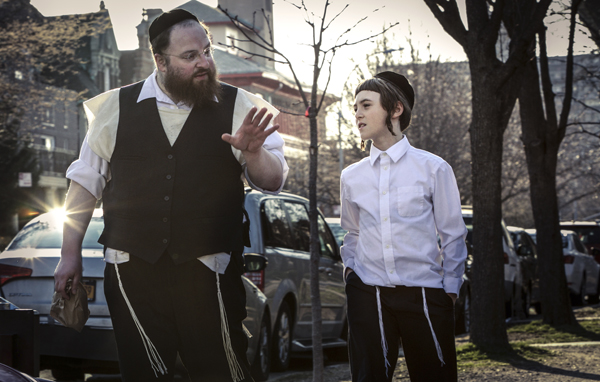

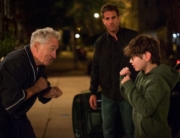
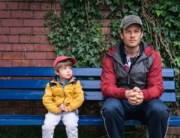
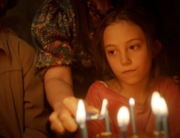
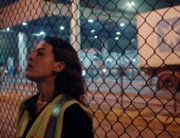
Leave A Comment